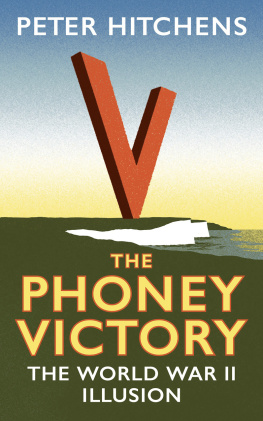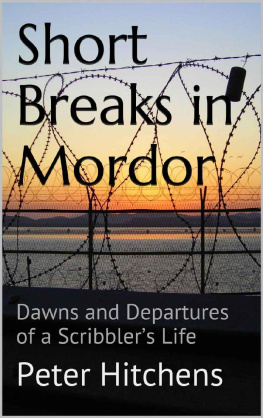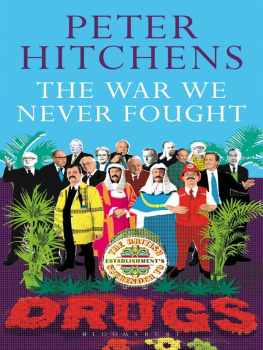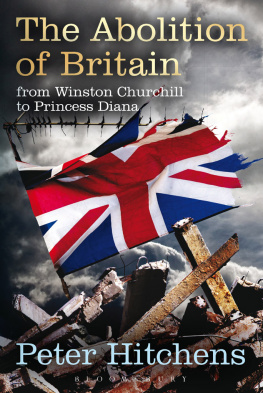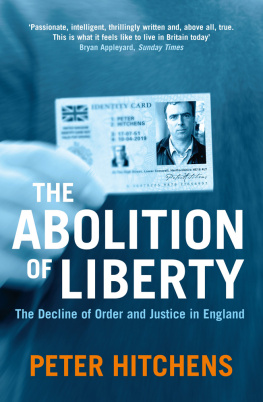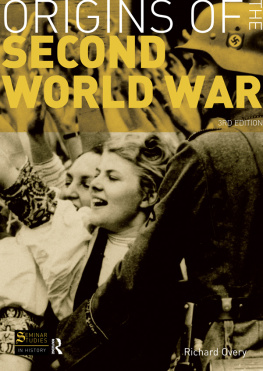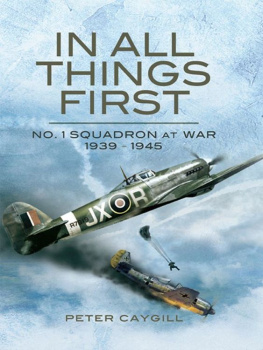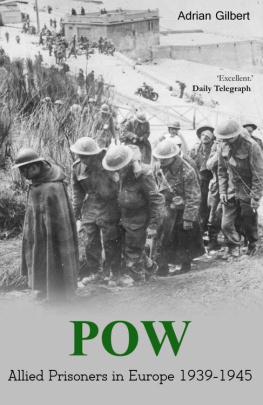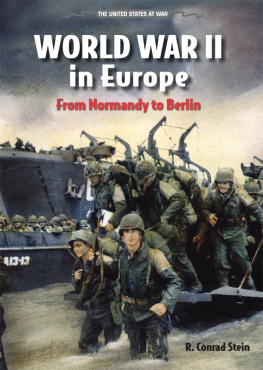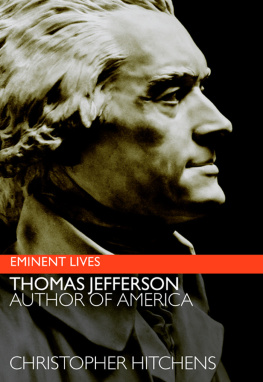Peter Hitchens is a journalist. He has a weekly column in the Mail on Sunday and is the author of several books, including The Abolition of Britain ; The Cameron Delusion ; The Rage Against God and The War We Never Fought .
The right of Peter Hitchens to be identified as the author of this work has been asserted by the author in accordance with the Copyright, Designs and Patents Act 1988.
All rights reserved. Except for brief quotations in a review, this book, or any part thereof, may not be reproduced, stored in or introduced into a retrieval system, or transmitted, in any form or by any means, electronic, mechanical, photocopying, recording or otherwise, without the prior written permission of the publisher.
References to websites were correct at the time of writing.
Countries that have long been Great Powers shrink from admitting that they are Great no longer.
A. J. P. Taylor,
( The Origins of the Second World War , 1961)
Acknowledgements
I dont think anyone is going to be very keen to be associated with this book, but I still need to thank those without whom I couldnt have written it. None of them, well almost none of them, bear any responsibility for its awkward, melancholy and unpopular tone, let alone for the deliberate misunderstandings it will predictably attract.
Firstly I must mention my parents, Commander Eric Hitchens RN, and Yvonne Hitchens, late of the Womens Royal Naval Service, brought together by the tempest of World War II and marked by it for the rest of their lives. Both have gone on ahead of me, too far ahead to know of this work.
If only I had known the half of what they endured for me and my generation, we might have understood each other better. But I could never forget that my father, the only person I knew well who had seen active service in World War II, was never wholly sure who had won it. He neither felt he was living in a victorious country, nor (though very modest about his part in the conflict) felt it had rewarded him justly. To him, I owe the original idea. To my mother, I owe my melancholy understanding that for many people the peacetime of victory was a disappointment, into which the ghosts of a more inspiring past sometimes intruded, quite a lot. I was also much influenced and helped by Patrick Buchanans Churchill, Hitler and the Unnecessary War , though I continue to reject many of the conclusions he drew.
Unlikely thanks go to Denis MacShane, who is in a way this books godfather. Because of a debate in which Denis and I clashed on the European issue, I had the good fortune to meet Joanna Godfrey of I.B.Tauris. Joanna rashly asked me if I had any ideas for a book and did not flinch even slightly when I offered her this one. She has not flinched since, either. Sarah Terry, who took on the prickly and unenviable task of editing my manuscript with amazing calm, patience and good humour, likewise deserves special thanks. And my great thanks to Alex Billington who, in the final fretful stages of preparing this text, patiently endured and indulged my incessant minor changes and panics.
To my wife, Eve, once again my limitless gratitude for enduring the making of yet another book, and the loss of all the precious time stolen from us by it.
As ever, I must also express my perpetual admiration for the librarians of the London Library, a paradise of research, without which this book would have been impossible. If there is any credit, they should have a large share of it. But with more emphasis than usual, I should say that if there is any blame, it is entirely mine.
Timeline
Some significant events in this narrative, or relevant to it. I have of course selected them to reflect my biases and preoccupations. Not all are traditionally viewed as major in British accounts of the war. I have left out some events that are very well known, to give prominence to others which are less celebrated but in my view important.
6 February 1922
Washington Naval Treaty ends two centuries of British global naval supremacy.
17 August 1923
Anglo-Japanese Alliance (dating from 1902) cancelled on American insistence.
1 December 1925
Locarno Treaties open way for eventual renegotiation of borders between Weimar Germany, Czechoslovakia and Poland, as only recently agreed at Versailles. Jzef Beck, Polish foreign minister, later says, Germany was officially asked to attack the east, in return for peace in the west.
1929
Construction of Maginot Line begins, also undermining French post-1918 pledges to fight future German aggression in concert with Poland.
25 July 1932
PolishSoviet Non-Aggression Pact signed.
25 October 1933
Recapture of Fulham East seat at by-election by Labour candidate John Wilmot (who campaigned, among other things, for peace). Wilmot persuades some Tories that rearmament is an electorally dangerous policy.
26 January 1934
GermanPolish Non-Aggression Pact signed.
15 June 1934
Britain suspends repayment of its World War I debts to the USA, never subsequently resumed and worth about 40 billion by todays values.
25 July 1934
Austrian Nazis murder Chancellor Engelbert Dollfuss in an attempted putsch. Italian Fascist dictator Benito Mussolini sends troops to the Austrian border and aids Austrian government against the Nazi putschists. Putsch fails.
6 March 1935
British Defence White Paper greatly increases spending on armaments, decried by Labour-supporting Daily Herald on 7 March as an affront to Germany and a threat to peace.
18 June 1935
Anglo-German Naval Agreement (like Locarno Treaties) undermines Versailles settlement, gives Germany effective naval supremacy in Baltic.
18 December 1935
Resignation of Sir Samuel Hoare as Foreign Secretary over moral outrage at HoareLaval Pact is followed a few days later by similar outrage in France. Any serious Franco-British attempts to detach Italy from Nazi Germany come to an end.
29 February 1936
US Congress retaliates against British suspension of war debt by passing amended version of 1935 Neutrality Act, forbidding all credits to belligerents (later modified in 1937 and 1939, partly circumvented by Destroyers for Bases Agreement of 2 September 1940, and superseded by Lend-Lease Act of 11 March 1941).
25 February 1936
Franco-Soviet Treaty of Mutual Assistance ratified by French parliament. In fact, this pact will remain a dead letter.
7 March 1936
Germany (on pretext of Frances ratification of Franco-Soviet pact) reoccupies Rhineland.
23 October 1936
Belgium begins its withdrawal from military pact with France, nullifying Maginot Line by leaving Frances northern frontier exposed.

